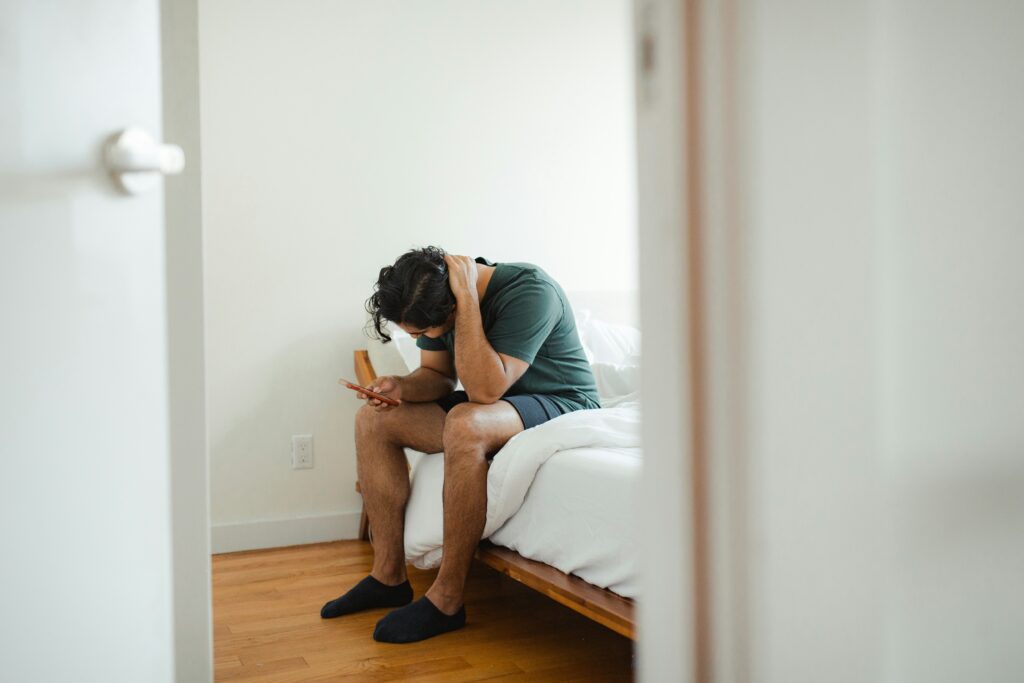Getting a good night’s sleep can often feel like a luxury in today’s fast-paced world. With busy workdays, social commitments, family responsibilities, and the incessant glow of screens, it’s no wonder many adults are skimping on rest. However, it’s essential to recognize that sleep is not just a restorative process for the body; it’s profoundly connected to your mental health. In fact, addressing your sleep patterns could be a key step in maintaining or improving mental well-being. In this blog post, we will explore the intricate relationship between sleep and mental health in adults and discuss how the two are consistently interlinked.
The Importance of Sleep
Sleep is the foundation for physical health and mental well-being. During sleep, your body and brain engage in activities crucial for overall functioning. These include memory consolidation, cognitive processing, tissue repair, and the regulation of mood-related chemicals. Inadequate or poor-quality sleep disrupts these processes, affecting your day-to-day life and long-term mental health.
The Biological Connection
Let’s delve deeper into the science behind sleep and mental health. Sleep and mental health are biologically intertwined through several key mechanisms. Neurotransmitters such as serotonin, dopamine, and cortisol play significant roles in regulating mood and sleep. For instance:
- Serotonin: This neurotransmitter helps regulate mood and sleep. Lower levels of serotonin are associated with depression and sleep disorders.
- Dopamine: Responsible for reward and pleasure responses in the brain, dopamine production follows a daily rhythm that impacts sleep-wake cycles. Disruptions can contribute to mood disorders like depression and bipolar disorder.
- Cortisol: Known as the stress hormone, cortisol levels naturally dip at night to aid sleep, then rise in the early morning to prepare you for being awake. Chronic stress and sleep deprivation can elevate cortisol levels, contributing to anxiety and a perpetuating cycle of poor sleep.
Common Mental Health Disorders Affected by Sleep
It is essential to understand how sleep directly impacts specific mental health disorders. Here are three that are heavily influenced by sleep:
- Depression: Insomnia and hypersomnia (excessive sleepiness) are common symptoms of depression. Research reveals a bidirectional relationship; not only can depression lead to sleep issues, but prolonged sleep problems can significantly increase the risk of developing depression.
- Anxiety Disorders: Generalized anxiety disorder, PTSD, and other anxiety disorders often lead to difficulties in falling and/or staying asleep. This can create a vicious cycle where lack of sleep exacerbates anxiety symptoms, making it even harder to achieve restful sleep.
- Bipolar Disorder: Sleep disturbances are a hallmark of bipolar disorder. During manic episodes, individuals may experience decreased need for sleep, whereas depressive episodes can result in hypersomnia. Stabilizing sleep patterns can be crucial in managing the disorder.
The Impact of Poor Sleep on Everyday Mental Functioning
Beyond clinical mental health disorders, poor sleep can affect your general mental well-being and everyday functioning. Here’s how:
- Cognitive Impairment: Lack of sleep impairs attention, decision-making abilities, and multitasking, making daily activities more challenging.
- Emotional Regulation: Sleep deprivation lowers your ability to cope with stress, making you more susceptible to emotional outbursts, irritability, and mood swings.
- Productivity and Performance: Inadequate sleep reduces productivity by affecting concentration and motivation. This can be particularly detrimental in professional settings and impact personal goals.
Steps to Improve Sleep and Mental Health
Understanding the connection between sleep and mental health empowers you to take actionable steps towards better well-being. Here are some strategies you can implement:
- Maintain a Sleep Schedule: Go to bed and wake up at the same time every day, including weekends. This helps regulate your body’s internal clock, making it easier to fall asleep and wake up.
- Create a Relaxing Bedtime Routine: Engage in calming activities before bed, such as reading, meditation, or a warm bath. This signals your body that it’s time to wind down.
- Optimize Your Sleep Environment: Ensure your sleep environment is conducive to rest. This means a comfortable mattress and pillows, a dark, cool room, and minimal noise.
- Limit Exposure to Screens: The blue light emitted by phones, tablets, and computers can interfere with your sleep cycle. Try to turn off screens at least an hour before bedtime.
- Watch Your Diet: Avoid caffeine and heavy meals close to bedtime. Eating a balanced diet can also improve the quality of your sleep.
- Seek Professional Help: If sleep issues persist, it may be beneficial to consult a healthcare provider. Treatment options such as cognitive-behavioral therapy for insomnia (CBT-I) can be particularly effective.
The Role of Massachusetts Mental Health Treatment Centers
If you’re struggling with persistent sleep problems and its impact on your mental health, you don’t have to go through it alone. Massachusetts Mental Health Treatment Centers offer comprehensive treatments tailored to your needs. Our experienced professionals are dedicated to helping you identify and manage the root causes of sleep disturbances and any associated mental health issues.
With a holistic approach that combines therapy, medication management, and lifestyle modifications, we work collaboratively with you, every step of the way, to achieve sustainable improvements in sleep and mental health.
Call to Action
Take the first step towards a healthier, happier life by prioritizing your sleep and mental well-being. Contact Massachusetts Mental Health Treatment Centers today to learn more about our specialized mental health treatment programs in Massachusetts. Start your journey to better sleep and improved mental health by calling us or visiting our website to schedule a consultation. You deserve to feel your best, and we are here to help you accomplish just that.
By understanding and nurturing the connection between sleep and mental health, you can take control of your well-being and improve your quality of life. Remember, small adjustments can lead to significant changes. Here’s to better sleep and a healthier mind!










